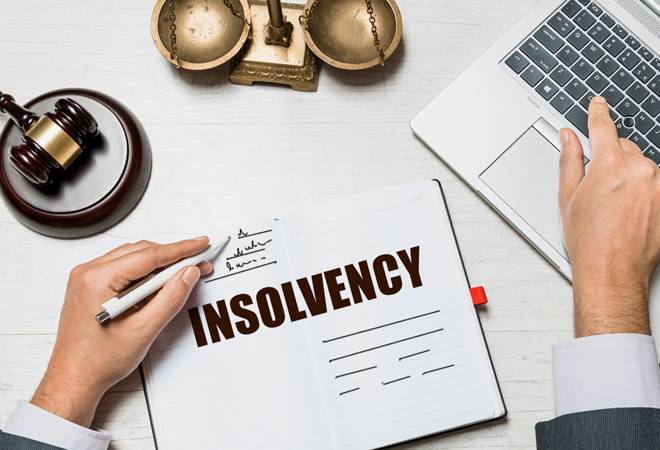The 8-Second Trick For Insolvency Practitioner
The 8-Second Trick For Insolvency Practitioner
Blog Article
Getting My Insolvency Practitioner To Work
Table of ContentsThe 8-Second Trick For Insolvency PractitionerInsolvency Practitioner for BeginnersThe Buzz on Insolvency PractitionerThe 7-Minute Rule for Insolvency PractitionerThe Basic Principles Of Insolvency Practitioner What Does Insolvency Practitioner Do?Insolvency Practitioner Can Be Fun For EveryoneInsolvency Practitioner - QuestionsNot known Facts About Insolvency Practitioner
This can happen for a variety of reasons, consisting of bad monetary management, unexpected prices, or an adjustment in the market. If a business is financially troubled, it may be forced to shut down or sell off possessions to pay financial institutions. This can have a significant effect on the business, staff members, and investors.
The Insolvency Practitioner Diaries
Other reasons for bankruptcy consist of scams, mismanagement, and unexpected costs. Bankruptcy can additionally lead to job losses and the closure of companies.
The firm might be forced to market properties, lay off staff or even close down. Lenders may be left out of pocket and the firm's investors may see their investment vanish.
Insolvency is the process wherein a company is ended up and its assets are sold off to pay financial institutions. This is typically the last resource, as it can have a really adverse effect on the business's reputation. Receivership occurs when a business is not able to pay its financial obligations and is put under the control of an outside administrator.
The 30-Second Trick For Insolvency Practitioner
Voluntary administration is comparable to receivership, but it is initiated by the directors of the business instead of the financial institutions - Insolvency Practitioner. This option is usually used when a company is encountering economic problems yet there is still really hope that it can be reversed. Business insolvency is a facility and major concern that can have far-ranging effects for organizations of all dimensions
With the appropriate aid, you can make sure that your business has the most effective chance of weathering this difficult time.
Not known Facts About Insolvency Practitioner
Whatever your reason for shutting your organization, there are many considerations you have to attend to prior to 'shutting the doors'. There's also a great deal you can do to make the procedure much less demanding and obtain better outcomes. Closing down your service is not simply concerning meeting the useful and lawful needs.
Care for your employees As an employer, you require to check and give assistance to your workers throughout this demanding time. Understand any type of possible wellness and well-being problems they may experience due to the fact that of: task insecuritytransitioning via the sale of the businesschange in owners. You can: There are generally 2 circumstances in which you would voluntarily shut your company.
You additionally: do not desire to, or can't, sell the businesshave no-one to take it over. You could be shutting your organization due to the fact that: it's not covering its expenses and running costsyou can't maintain the operating prices while attempting to market it.
Insolvency Practitioner Can Be Fun For Anyone
There are lots of things you require to deal with prior to closing your service. Your accountant, solicitor or service advisor will certainly be able to assist you with this.

You need to finalise all tax concerns for your business, even if it's no longer trading. This includes your obligations regarding repayment of: edge look at this site benefits taxpay-as-you-go (PAYG)superannuationemployment discontinuation.
How Insolvency Practitioner can Save You Time, Stress, and Money.
Insolvency occurs when your organization can not pay its financial debts, this which can result in your company shutting down. Various bankruptcy procedures use to individuals and companies.
If you attempt to manage it yourself, you'll need to communicate with every creditor separately to try to bargain routine payment quantities. Bankruptcy or insolvency advisors can: support you via the processhelp you recognize your optionsnegotiate with your financial institutions in your place. They hold certain licences and qualifications in this specialized area.
9 Simple Techniques For Insolvency Practitioner

Personal insolvency for sole traders and individuals within partnerships Personal insolvency treatments apply to: Before beginning a personal bankruptcy procedure, it's crucial to recognize the: effect of the consequenceshow long the impact will be., likewise recognized as a Part IX agreement, permits you, or the assigned administrator, to bargain with your lenders to pay a portion of the combined debts over a duration of time to your administrator, rather than attempting to continue making payments to each financial institution.
Firm bankruptcy and liquidation An 'bankrupt company' is not able to pay its debts or cover the cost of its expenses. In some circumstances, bankrupt companies may enter into liquidation. Liquidation is when an independent authorized liquidator is designated to take control over the business and end up the company service in an organized means.
The 10-Minute Rule for Insolvency Practitioner
As noted in the Intro, while the report reveals particular choices with regard to a few of the more crucial of these choices, it does not attempt to establish criteria in this complex area. It might need to be upgraded in the i was reading this future to take into account growths in this location.
Sonia Piccinini devoted considerable time and effort in the preparation of this publication. The views shared in the record are those of the IMF's Legal Division and should not be connected to the Exec Supervisors or the Administration of the IMF. FRANOIS GIANVITI Current experience has actually shown the degree to which the lack of organized and reliable insolvency treatments can exacerbate financial and monetary dilemmas.
Report this page